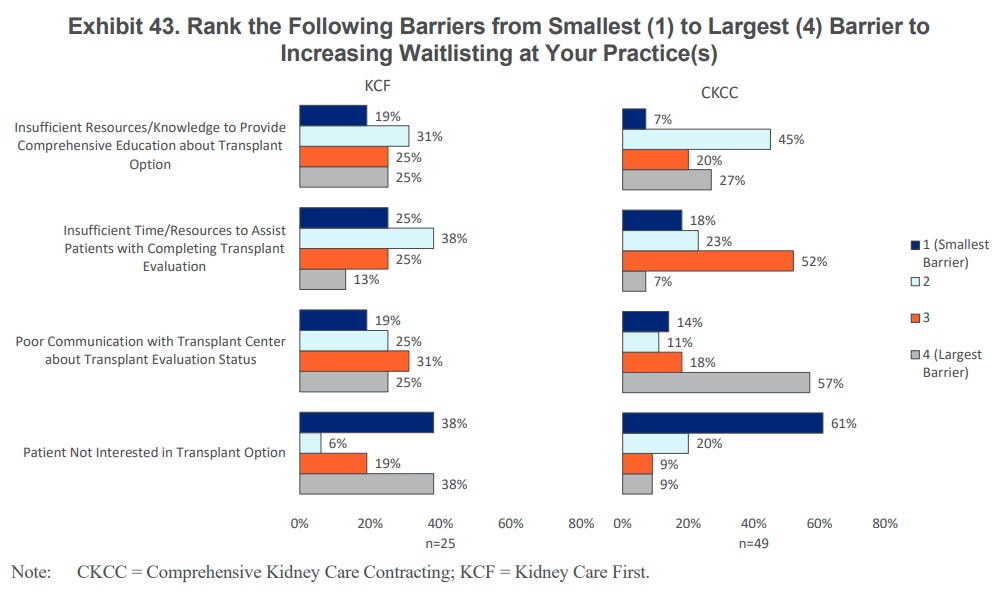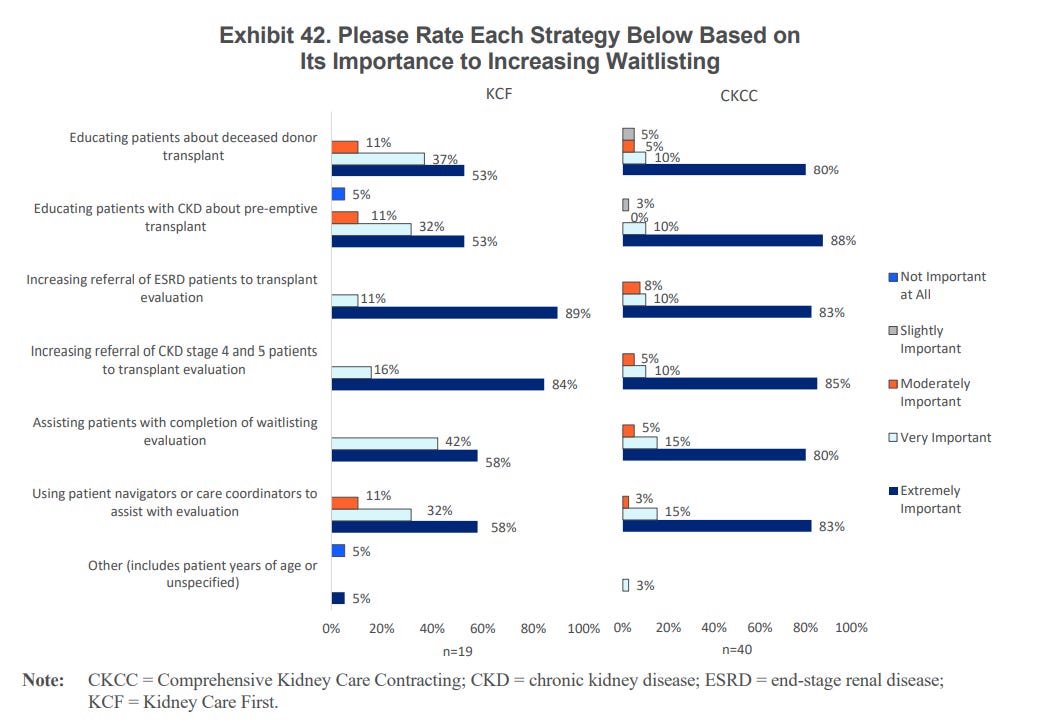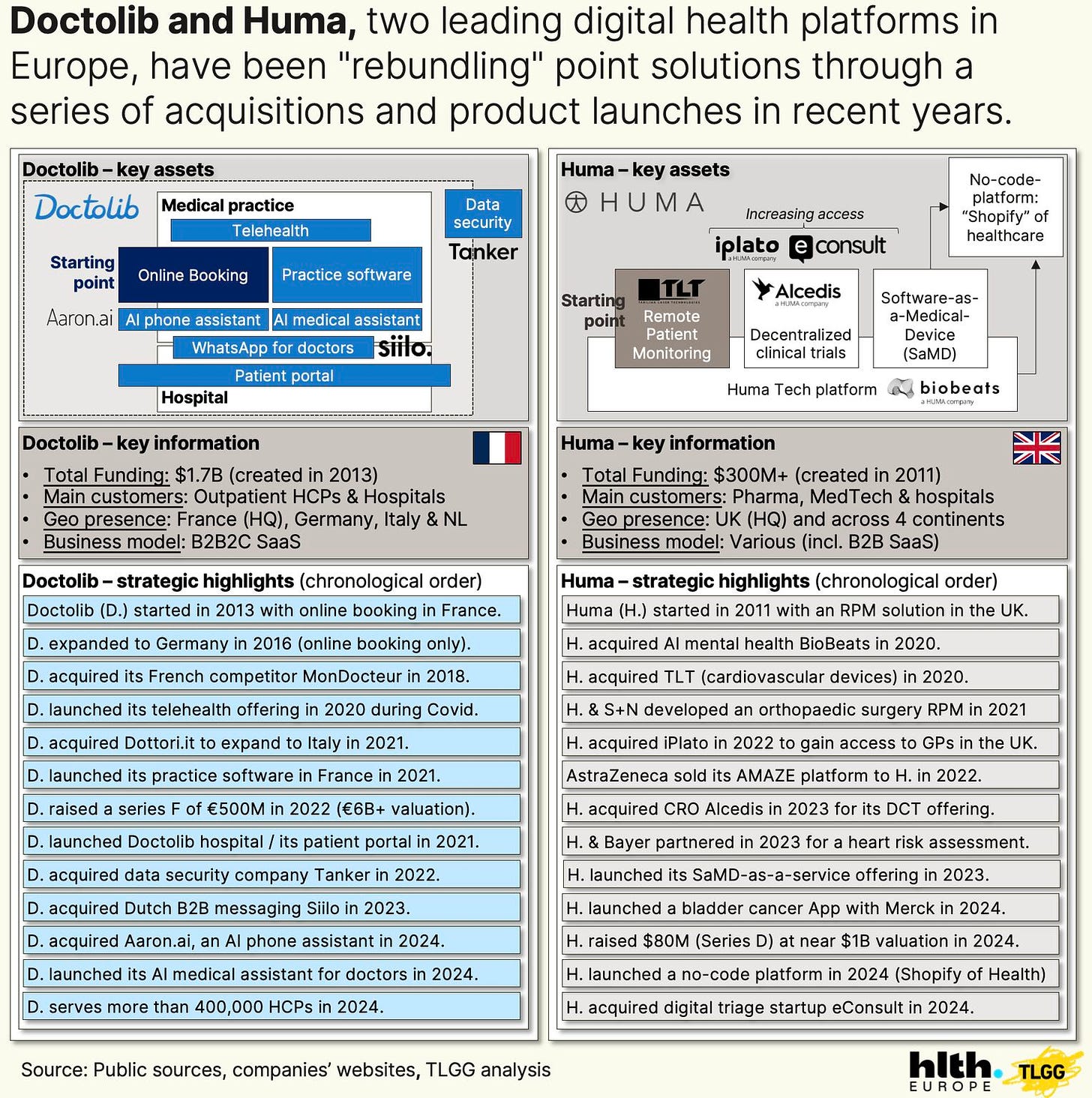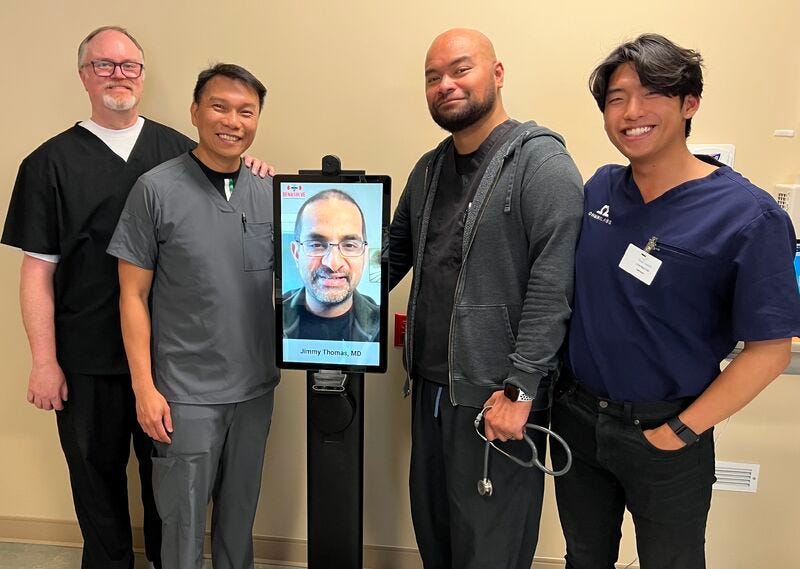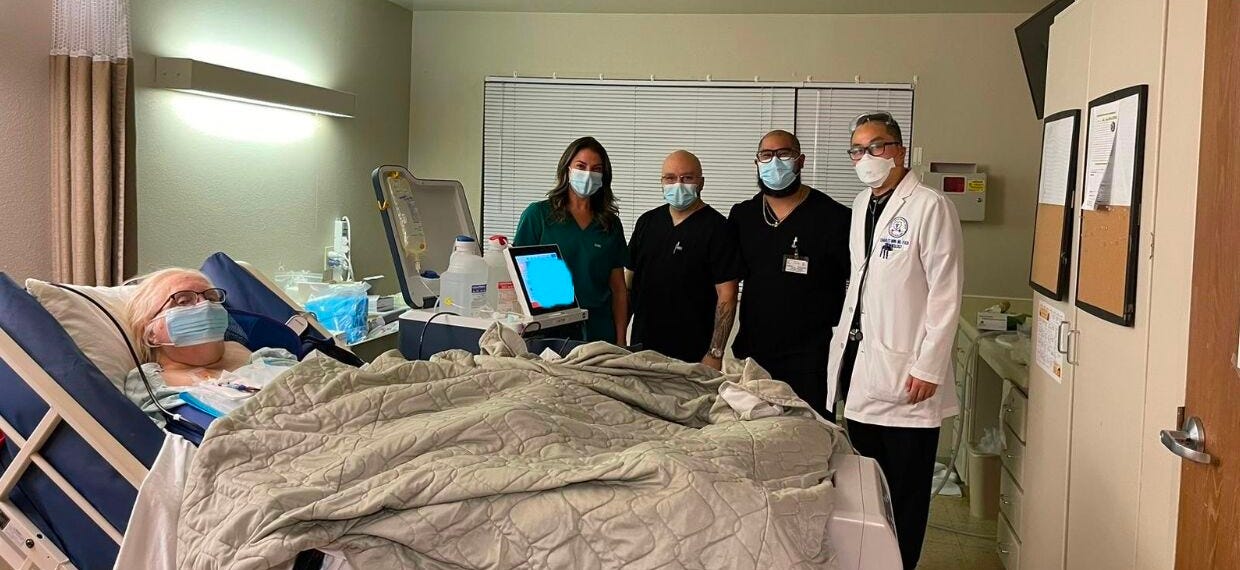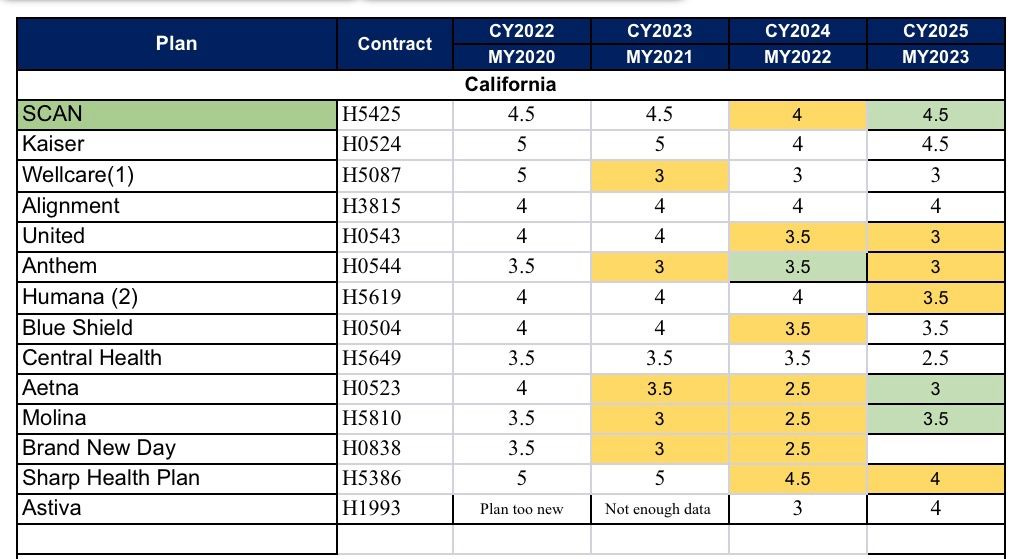Signals Weekly: Supply chain struggles, new biotech funding, novel gene therapy progress, and a sister’s life-saving kidney donation; & more...
Your weekly collection of news, research, funding & community voices shaping the future of kidney care.
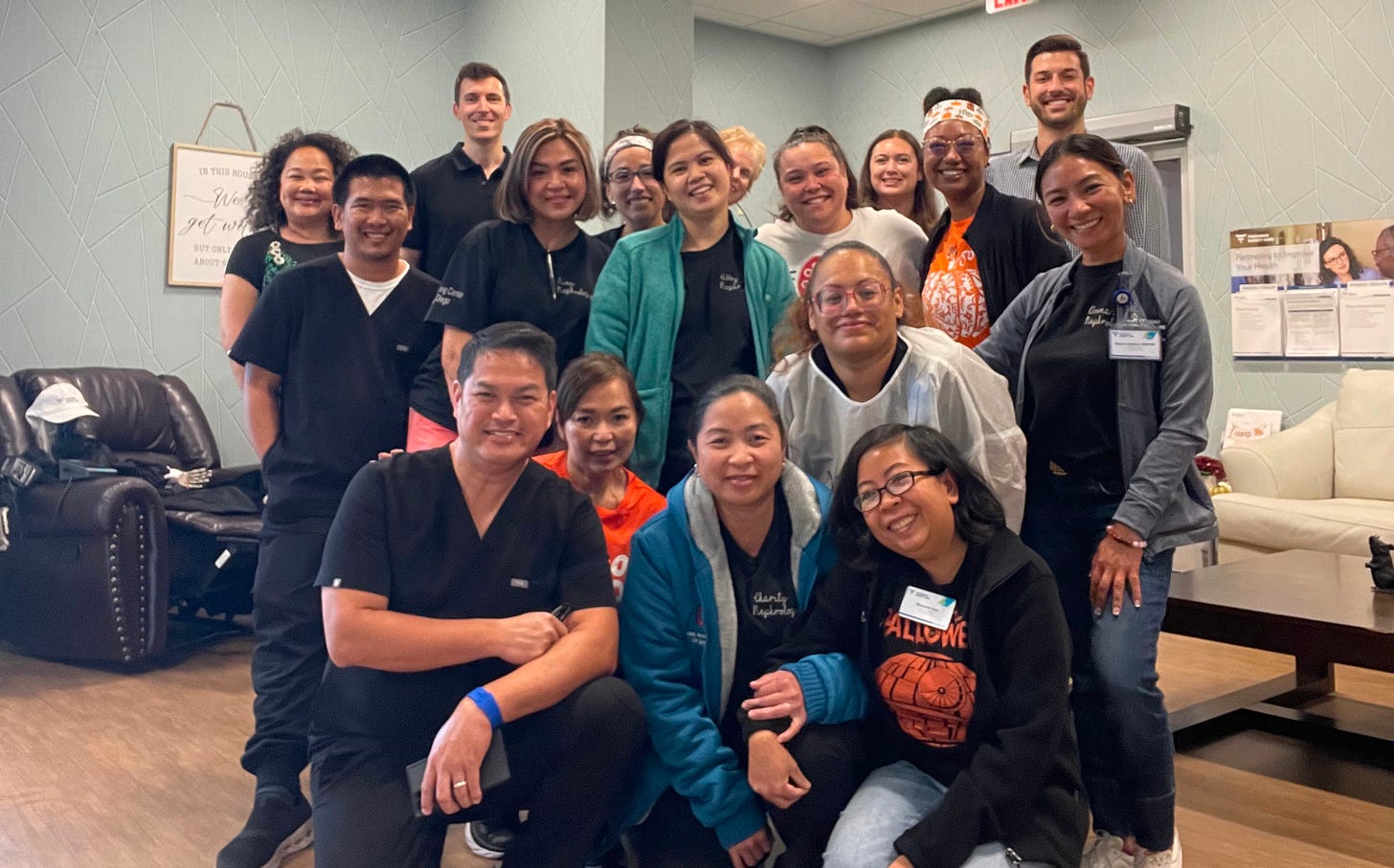
This week, we're focusing on the resilient spirit of innovation shaping the future of kidney care. Whether it's the biotech excitement from fundraises like Judo Bio and Purespring, or ties to space-age ‘moonshots’ from thought leaders like Dr. Leslie Wong, it’s clear that kidney care is on the brink— even if we don’t yet know what’s on the other side of that precipice. As we navigate these new frontiers, and recover from multiple weeks of historic destruction, patient safety and the continuity of care remain at the forefront of all we do and aspire to become.
I’d love to hear your thoughts, especially as we gear up for fall conferences. If you're planning to attend Kidney Week, let me know—I’d love to connect and learn about your work in person!
This is your weekly collection of news, research, funding and voices shaping the future of [kidney] care. All Signals posts and our full archive are now completely free to read, thanks to our sponsors.
This issue is presented by IKONA, the leading VR platform for kidney education & training, designed to support patient education and workforce training in dialysis clinics, practices, and beyond.
This week
Poll: How do we increase transplant listings?
Fresenius, B Braun ramping production
Baxter issues update on Helene recovery
Judo Bio raises $100M for genetic medicines targeting CKD
Purespring secures £80M for kidney gene therapy platform
Leslie Wong discusses “moonshot” innovations in kidney care
Study highlights the role of health equity in APOL-1 clinical studies
Story: Living kidney donation lets two sisters live out their dreams
Vivance completes trial for wearable dialysis device in Singapore
Astellas lists DIGITIVA™ for heart failure management with the FDA
Glooko raises $100M and appoints a new CEO
Studies say AI can help learning... when it isn't a crutch.
& More…
Increasing Transplant Access
CMS recently published the First Annual Evaluation Report for the first year following implementation of the Kidney Care Choices Model (KCC). Let’s take a closer look at their transplant access findings.
In this week’s Signals poll we asked for your take on these results. We asked you to fill in the blank:
“The MOST effective practice-level strategy to increase waitlisting and access to kidney transplant is _____________.
More than half (53%) said educating recipients and potential donors is the best strategy, followed by assisting patients with the evaluation process (21%) and increasing referrals for evaluation (18%).
Sharing a few insightful perspectives from you on LinkedIn:
Todd Black: “Tim, its the timing of the referral and education that is most crucial. ~95% of patients on the waitlist were added after the start of dialysis. The KDIGO guidelines recommend education at CKD stage 4.”
Vanessa Evans: “Tim, after filling out the common app with my applying college kids, it occurred to me why do we not have a common app format for transplant clinics. Each transplant clinic could gather the general information needed and there could be supplemental questions/labs that may be needed for certain patients/hospitals. This would streamline the process and enable many more patients, not only to get on the list, but also to be on multiple lists. Of course the patients would have to adhere to yearly evaluations and labs, but it could be done at one centralized location- close to their house and then they could use those labs for multiple hospitals. The system now is too complicated and convoluted.”
Amy M.: “Finding ways to make anti-rejection medication affordable. My patients can not accept a new monthly $1100 out of pocket expense for the medication.”
Glenna Frey: “Providing a support system to get living kidney donors (support for donors & recipients).”
Odie Pauley: “Remove financial barriers.”
Sharyn Kreitzer: “Nothing beats good old fashioned outreach and personalized navigation support. Follow Northwestern’s lead ( as well as other transplant programs with outreach liaisons) Outreach can also focus on primary care and nephrology practices. Target underserved communities. One size doesn’t fit all. This common sense approach will result in earlier referrals to transplant. Ideally, these outreach positions would be funded outside of a transplant centers program so the patient could be directed to center that best meets their medical needs ( versus the center that has a liaison).”
Dan Field: “Pay for them.”
Jeff Parke: “Tim, what about reducing systemic biases in the healthcare system. Addressing disparities in access to transplant lists for minority groups, low-income patients, and those with limited healthcare literacy is crucial. Implementing bias training for healthcare professionals, improving equity in care access, and offering support systems to guide vulnerable populations through the evaluation process would ensure more patients can be waitlisted regardless of socioeconomic or racial backgrounds— similar to Northwestern.”
Signals
Fresenius Medical Care increasing IV, dialysis solutions production to alleviate shortages
Fresenius Medical Care is stepping up production of IV fluids and peritoneal dialysis (PD) products to help mitigate U.S. shortages caused by Hurricane Helene’s impact on the supply chain. To support the industrywide shortage, Fresenius is increasing capacity at international sites and collaborating with the Department of Health and Human Services to explore other solutions. Baxter, whose North Carolina facility was damaged, has implemented purchase limits to manage inventory, with plans to restore supply levels by the end of 2024. B. Braun is also increasing production, resuming operations at its Daytona Beach site after Hurricane Milton, and coordinating with federal agencies to ensure supply availability.
Baxter issues latest update on Hurricane Helene recovery
Baxter's North Cove manufacturing site in North Carolina was severely impacted by Hurricane Helene, resulting in significant flooding and disruptions to operations. In response, Baxter has implemented inventory allocation strategies, restricting customer orders to historical levels and medical necessity to manage product availability. Baxter is collaborating with the FDA to import products and scale production at other facilities while working toward restoring full operations at North Cove by the end of 2024.
Based on Baxter’s efforts to increase manufacturing capacity at its other sites and our current assessment of anticipated timing of inbound products and air shipments, we are increasing the current U.S. allocation levels of our highest demand IV fluids for direct customers from 40% to 60%, and for distributors from 10% to 60%, effective Wednesday, Oct. 9.
🧰 AKF put together this list of state and local resources if you or someone you know was impacted.Judo kickstarts with $100M to develop genetic medicines that strike out kidney disease
New biotech Judo Bio has emerged with $100 million in seed and series A funding to develop genetic medicines targeting the kidney. Led by CEO Rajiv Patni, M.D.—an industry veteran with past roles at Reata Pharmaceuticals, Global Blood Therapeutics, and Pfizer—Judo Bio aims to advance its lead ligand-siRNA conjugate into clinical trials. Backed by investors like Atlas Venture, The Column Group, and Droia Ventures, the company’s focus is on its STRIKE platform, which seeks to deliver genetic treatments to the kidney, a challenging target in genetic medicine.
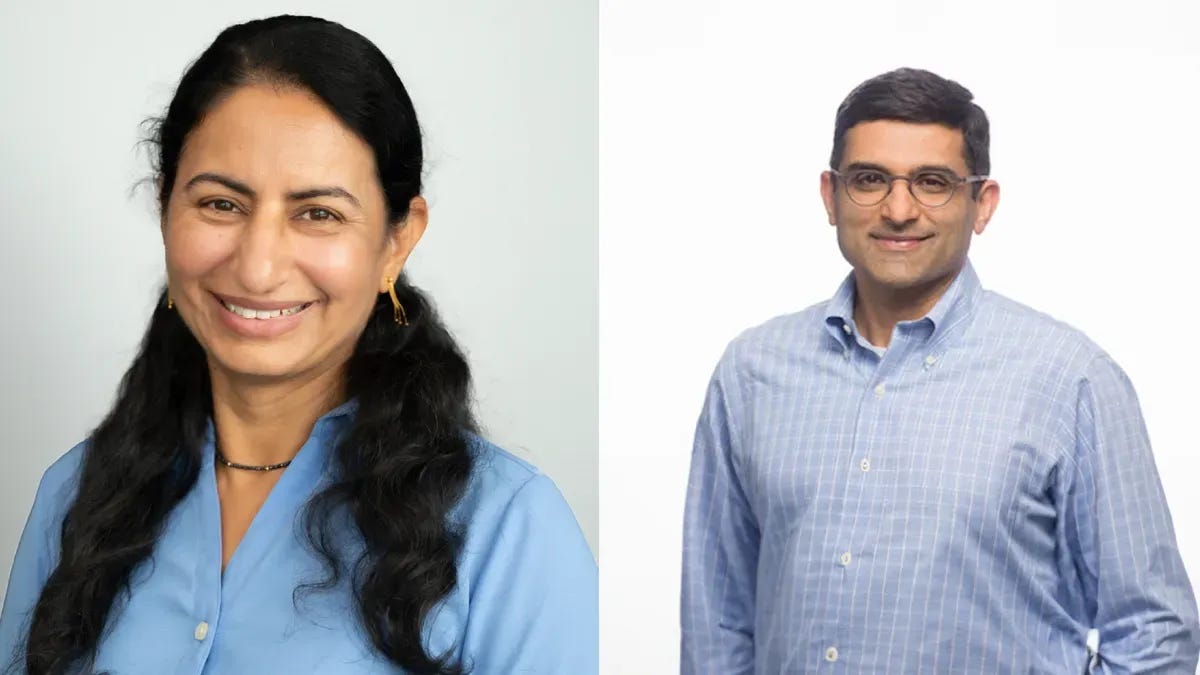
Purespring bottles up $105M series B to bring kidney disease gene therapy to the clinic
London-based Purespring Therapeutics has raised £80 million in an oversubscribed series B round led by Sofinnova Partners. The funds will support Purespring’s gene therapy platform aimed at treating chronic kidney disease, which affects nearly 10% of the global population. Their lead candidate, PS-002, is being developed for IgA nephropathy, a condition that often leads to kidney failure in young adults. Using adeno-associated viral vectors, Purespring’s gene therapy targets podocytes—specialized kidney cells—offering hope for patients with kidney diseases such as nephrotic syndrome. See below animation from the company’s website.
Technology offers one ‘moonshot’ closer to optimal kidney care
Leslie Wong’s article in Healio reflects on the evolution of kidney care following the 2019 Advancing American Kidney Health executive order, which inspired a bold vision to transform the field. Since then, initiatives like the Kidney Care Choices model and KidneyX have sparked innovations in dialysis, kidney transplants, and patient-centered care. The term “moonshot” signifies the ambitious goals of improving outcomes and addressing the organ shortage crisis. The article covers technological advancements in wearable dialysis, artificial kidneys, and xenotransplantation, while noting challenges like labor shortages and reimbursement constraints. The piece highlights the importance of embracing both innovation and risk to achieve optimal kidney care, much like the Apollo program’s success despite setbacks.
Study: A Conceptual Model to Achieve Health Equity in APOL-1 Clinical Studies
Abstract: The socioecological model (SEM) conceptualizes health broadly and focuses on multiple factors that might affect health. This article takes a novel approach to leverage an SEM framework to identify challenges and sustainable opportunities to advance diversity for clinical study participation in apolipoprotein L1 (APOL-1)-mediated kidney disease. We describe four levels of an APOL-1 SEM—intrapersonal, interpersonal, community, and structures/systems—for improved diverse APOL-1 clinical study enrollment and engagement. This SEM can serve as a model for improving clinical study diversity and equity to help improve the generalizability of clinical study results in other disease conditions that disproportionally impact racial and ethnic minority populations.
Her little sister needed a kidney. The donation let them both live their dreams
Amaris Elston gave her younger sister Dominique more than just a kidney—she gave her a new lease on life and a path to follow her dreams. After Dominique was diagnosed with kidney failure at just 18, Amaris didn’t hesitate to get tested, ultimately becoming her sister’s living donor. The transplant not only restored Dominique’s health but inspired her to pursue a career in medicine. Amaris graduated from UAB’s Heersink School of Medicine in 2022, and just two years later, Dominique earned her bachelor's degree in nursing, following the life-changing experience of receiving a kidney. Their story highlights the life-saving impact of living kidney donation, which helped Dominique avoid years on a transplant waiting list and gave both sisters the opportunity to live out their dreams. Living kidney donations, like Amaris’s, are critical in addressing the organ shortage and provide hope for thousands waiting for transplants in the U.S.
Podcast: How do we prevent chronic kidney disease upstream?
Chronic kidney disease is a silent threat. It is one of the leading causes of death in the U.S., yet 90% of those affected are unaware they have it. The lack of widespread testing means many, particularly in the Black community, face rapid health deterioration, often landing in dialysis without warning. In this episode, Geoff Martin, CEO of Healthy.io, joins Fierce Healthcare’s Emma Beavins to explore how his company is tackling this hidden crisis and changing the future of chronic kidney disease care.
Vivance Completes Pre-Pivotal Trial of Wearable Dialysis Device
Vivance has announced the successful completion of a pre-pivotal trial for their wearable peritoneal dialysis device, Viva Kompact. Conducted at Singapore General Hospital, the trial focused on performance and safety as patients used the device independently at home. Results will be presented at ASN Kidney Week 2024, highlighting how 10 patients completed at least one week of dialysis with no serious device-related events. Vivance believes this innovation could transform kidney care by enabling dialysis "anytime, anywhere."
Astellas Announces FDA Listing of DIGITIVA™ for Heart Failure Management
Astellas Pharma has announced the FDA listing of DIGITIVA™, its first digital health solution for heart failure in the U.S. The non-invasive platform places patients at the center of their care by enabling at-home disease monitoring. DIGITIVA consists of the CORE 500™ Digital Stethoscope, a smartphone app designed for heart failure patients, and educational content from the American Heart Association. The platform aims to improve clinical outcomes by notifying physicians when patient data signals potential complications, helping prevent events like re-hospitalizations.
Glooko scores $100M and appoints new CEO
Glooko, a digital platform for managing diabetes and chronic diseases, has raised $100 million in a Series F funding round led by Georgian, with participation from Canaan and Health Catalyst Capital. The company also announced Mike Alvarez as the new CEO, who brings experience from leadership roles at Qardio, Medtronic, and Sanofi. Glooko plans to use the funds to scale its connected healthcare platform globally, supporting remote patient management and clinical trial research for chronic conditions.
Digital health’s great re-bundling in Europe?
TLGG’s Thomas Hagemeijer always puts out great visuals and content. They’ve inspired a few of ours here in the kidneyverse. His latest piece takes a closer look at M&A activity between Paris-based Doctolib and London-based Huma. Thomas shared a few observations on digital health activity in Europe:
Following a period of unbundling into point solutions, digital health is re-bundling into digital health platforms
More healthtech M&A is expected in the coming months
Huma is taking a big bet with its acquisition of eConsult
Doctolib is Europe’s largest healthtech play, and it’s finally ready for partnerships
Study: AI can help learning... when it isn't a crutch.
Wharton’s Ethan Mollick recently wrote “There are now multiple controlled experiments showing that students who use AI to get answers to problems hurts learning (even though they think they are learning), but that students who use AI as a tutor perform better on tests.” He cited three papers that show how and why this is the case, which may appeal to those of you using and exploring use cases for AI in kidney care education and training. (Here, here, and here)
Community Voices
A collection of insights, opinions, updates and upcoming events from your peers and fellow explorers across the Kidneyverse.
📬 Submit your updates here.Mahesh Krishnan: "Ultimately, this journey shaped my belief that to drive real change in care delivery, you need to work on the system level, influencing policy, clinical protocols, and innovation."
and I sat down with Dr. Mahesh Krishnan to hear more about his career path and how he thinks about the state and future of kidney care. Learn more.
Raven Hardy Richard: “I’m thrilled to share that my latest article, “A Conceptual Model to Achieve Health Equity in APOL-1 Clinical Studies” has been published in Health Equity. This work was coauthored with Christine Lee-Flemming, PhD, PharmD , Cesia Portillo, MPH, CHES, Becca Hayes, MD, MEHP, Richardae Araojo and Robert Flemming. This article explores strategies to ensure that health equity is a priority in APOL-1 research, with the goal of promoting more inclusive and impactful clinical studies. It's a topic I'm passionate about, and I hope it contributes to the ongoing conversation on making healthcare research more representative and just.” Learn more.
Abhilash Koratala: “I’m honored to receive the Distinguished Educator Award from the American Society of Nephrology, which will be presented at Kidney Week 2024. I view this as recognition of the point-of-care ultrasound revolution in Nephrology. Thank you to everyone who has supported this movement to advance patient care and education.” Learn more.
Shika Pappoe: “What a week! I just returned from trips to New York, DC, and Bermuda where I had the opportunity to represent Carna Health and champion the important work we’re doing to improve the care of individuals with chronic kidney disease (CKD)… We are excited to continue the important work of identifying and empowering individuals at risk for and with CKD.” Learn more.
Suresha Venkataraya: “In our relentless pursuit of disruptive innovation in kidney care, we’ve hit another incredible milestone—the successful completion of the pre-pivotal trial for our one-of-its-kind Viva Kompact wearable PD device at Singapore General Hospital!” Learn more.
Mandar Gori: “Another milestone for Vivance (f/k/a AWAK Technologies)! Happy to announce the conclusion of our pre-pivotal clinical trial of the first-of-its-kind wearable dialysis device, Viva Kompact! The journey until here was challenging but at the same time very rewarding. It would not have been possible without the relentless work of the entire Vivance Team, notably our Senior Clinical Manager Sheena Gow who led the clinical operations with the help of many technical leads from our Engineering, Chemistry, Manufacturing, Supply Chain, Pre-Clinical and QARA teams who were on the ground day-and-night.” Learn more.
Jimmy Thomas: “Nursing training, compliance and survey readiness - check; Supply chain management, program marketing - check; 24/7 Nephrology team - check; Cutting edge hemodialysis technology - check; Dialysis access management support - check; Telemedicine robot with multilingual AI powered translator - check; Comprehensive renal care for rural America - check!!!” Learn more.
Outset: “Imagine telling an ESRD patient that they no longer will have to travel to an outpatient facility multiple times a week to receive dialysis and can instead undergo treatment from the comfort of their own room or on-site dialysis site. We're partnering with service providers and facilities like Park Rose Care Center, Liberty Healthcare Corporation and Spectrum Dialysis to make this a reality.” Learn more.
In 2023, Park Rose Care Center became the first skilled nursing facility (SNF) in Washington State to offer on-site dialysis services to its patients. Park Rose resident Vivian Smith (pictured below) was the first to receive bedside treatment using Tablo Dialysis.
Kevin O’Leary: [Responding to a recent interview with Intermountain CEO Rob Allen]: “It's not surprising to me to hear him saying that VBC has lost momentum. That seems to be a growing sentiment across the industry, but the critique generally seems to be centered around the administrative complexity of operating VBC models. It is more surprising to see him share that 75% of consumers feel VBC represents lower quality care, particularly given all of the arguments (good ones, imo) about VBC primary care models improving the quality of care.” Read more.
Sachin Jain: “Many don’t fully understand why STAR ratings have such an enormous impact on Medicare Advantage plans and their beneficiaries. STAR ratings are a measure of plan quality. They include objective and subjective measures of member experience and performance across a basket of measures. It is an imperfect program at best—but it is all we have and has enormous financial implications for plans.” Learn more.
Events
Dawn Edwards: “Hello Kidney Community! Please register and join us for our first annual Derek Forfang Webinar for everyone who has ever felt overwhelmed, burned-out, or just needs a pick-me-up! Meet up with fellow Kidney community members!” The event will take place at 7:00pm ET on October 29. 📅 Register here.
Jaimy Lee: “It's very much an all-eyes on AI in biotech moment. There's the news this week that David Baker, Demis Hassabis and John Jumper won the Nobel Prize in Chemistry for their work using AI to predict and then design proteins. Eli Lilly and Company announced its first AI officer: Thomas Fuchs. Join Endpoints News and David Baker on Wednesday for a fireside chat at AI Day (Wednesday, October 16 at 11:15am ET) and find out what’s next in the field.” 📅 Register here.
Support Signals
Apply to become a Signals sponsor 🚀: We're accepting applications from companies looking to get in front of 12,000+ monthly readers across the Kidneyverse— from industry, academia, investment, advocacy and government.
Kidneyverse Careers Job Board 💼: Explore top job opportunities across kidney care, from startups to established industry players. Whether you're hiring or looking for your next move, Kidneyverse Careers is the place to connect with top talent and cutting-edge companies. Have an open role you want sent out to our community? Submit it here.
Submit News & Tips to the Signals Inbox 📬: Got a story, tip, or update that should be on our radar? Send it our way through the Signals Inbox. Your contributions help shape the conversation and keep the community informed on the latest developments.
Join Signals Live Audio Events 🎙️: Participate in our next monthly Signals Live session on LinkedIn, where we discuss the latest trends, innovations, and news in kidney care. These drop-in audio events offer the chance to engage with industry leaders and share your insights in real time.
###

![Signals From [Space]](https://substackcdn.com/image/fetch/e_trim:10:white/e_trim:10:transparent/h_72,c_limit,f_auto,q_auto:good,fl_progressive:steep/https%3A%2F%2Fsubstack-post-media.s3.amazonaws.com%2Fpublic%2Fimages%2F4d588ac1-7fac-4bd4-829d-fc7b4e8f1326_1512x288.png)

![Signals From [Space]](https://substackcdn.com/image/fetch/w_36,h_36,c_fill,f_auto,q_auto:good,fl_progressive:steep,g_auto/https%3A%2F%2Fsubstack-post-media.s3.amazonaws.com%2Fpublic%2Fimages%2F55686857-6b99-45a6-ac0f-09c9f023f2a0_500x500.png)

